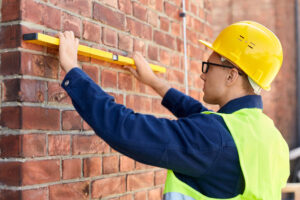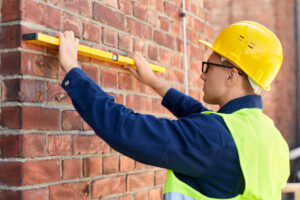Purchasing a home is a significant milestone for most individuals, making it crucial to ensure the property’s safety and value. This is where home inspectors play a vital role, meticulously examining properties to identify potential issues and provide expert advice. With the advancements in technology, home inspector training has also evolved, offering aspiring professionals the convenience and flexibility of online learning.

In this article, we will explore the world of home inspector training online, discussing its benefits, curriculum, and the tools and resources available to students.
- Flexibility and Convenience:
One of the primary advantages of online home inspector training is the flexibility it offers. Unlike traditional classroom-based programs, online training allows students to study at their own pace and convenience. Individuals can access course materials and lectures from anywhere in the world, as long as they have an internet connection. This flexibility is particularly beneficial for working professionals or those with other commitments, as they can balance their training with their existing responsibilities.
- Comprehensive Curriculum:
Online home inspector training programs provide comprehensive and up-to-date curricula that cover all the essential aspects of the profession. Students can expect to learn about building codes, structural systems, electrical and plumbing systems, HVAC systems, roofing, and much more. The curriculum is designed to equip students with the necessary knowledge and skills to assess a property thoroughly and identify potential issues that may affect its safety and value.
- Interactive Learning Experience:
Contrary to the misconception that online learning lacks interaction, home inspector training programs online offer interactive learning experiences. Students can participate in virtual discussions, join forums, and collaborate with fellow learners from diverse backgrounds. Many online platforms provide opportunities for students to engage with industry professionals and ask questions, fostering a sense of community among learners.
- Multimedia Resources and Simulations:
Online home inspector training is not limited to reading textbooks and watching videos. Instead, it leverages multimedia resources to enhance the learning experience. Students can access interactive simulations, virtual walkthroughs, and real-life case studies that allow them to apply their knowledge in practical scenarios. This hands-on approach ensures that students gain a deeper understanding of the concepts and develop critical thinking skills necessary for the profession.
- Access to Industry Experts:
Home inspector training online often provides access to industry experts and experienced professionals who serve as instructors and mentors. These experts share their real-world experiences, insights, and best practices, giving students a comprehensive understanding of the field. The ability to interact with and learn from seasoned professionals enriches the learning journey, providing valuable perspectives and guidance.
- Certification and Professional Development:
Completion of an online home inspector training program usually leads to certification, which is widely recognized in the industry. Certification adds credibility to an individual’s skills and expertise, making them more marketable in the job market. Additionally, online training platforms often offer ongoing professional development opportunities, enabling home inspectors to stay updated with the latest industry trends, regulations, and technologies.
- Cost-Effective Learning:
Compared to traditional in-person training programs, online home inspector training is often more cost-effective. Students can save on commuting expenses, accommodation costs, and other expenses associated with attending physical classes. Furthermore, online programs tend to have flexible payment options, making education more accessible and affordable for aspiring home inspectors.

In a digital age where convenience and flexibility are highly valued, online home inspector training has emerged as an excellent alternative to traditional classroom-based programs. The ability to study at one’s own pace, access a comprehensive curriculum, and benefit from interactive learning experiences are just some of the advantages of online training. With the inclusion of multimedia resources, industry expert guidance, and certification opportunities, individuals seeking a career as home inspectors can gain the necessary knowledge and skills to excel in the field.
Learn more at Wiki as well.

